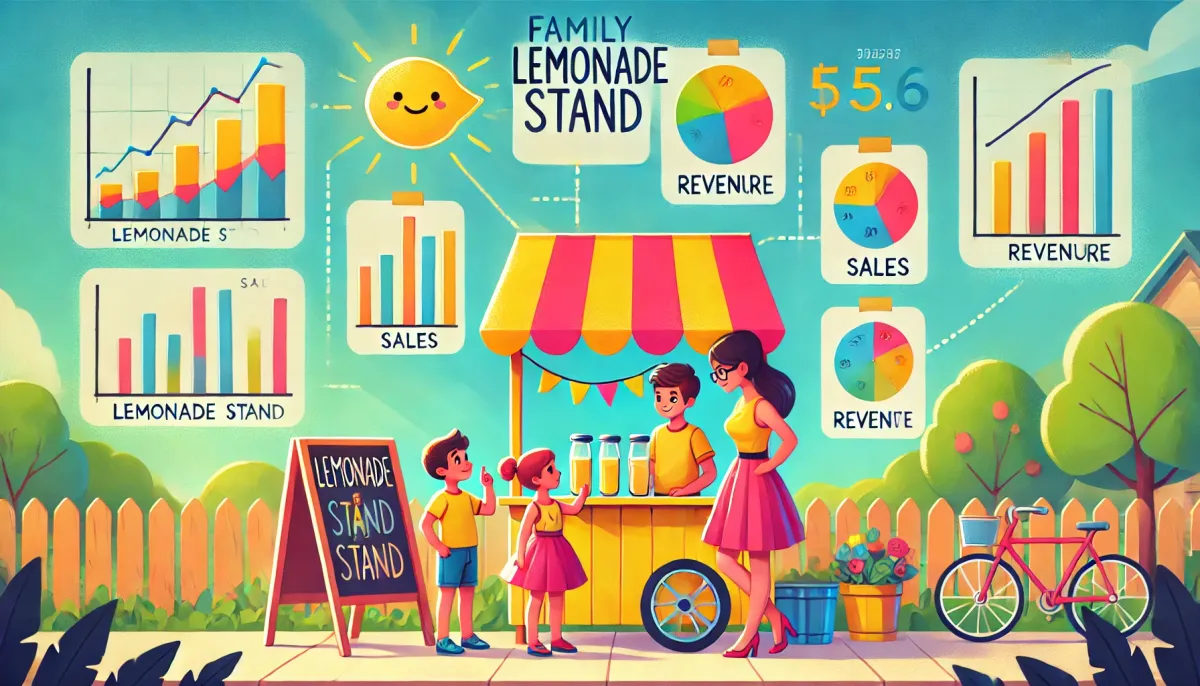The Sweet Taste of Success
Just a day after our exhilarating lemonade stand adventure, our family gathered around the kitchen table to dive into the financial side of our entrepreneurial endeavor...

Just a day after our exhilarating lemonade stand adventure, our family gathered around the kitchen table to dive into the financial side of our entrepreneurial endeavor. The kids were buzzing with excitement, eager to see the fruits of their labor. As we emptied the cash box, the kids' eyes widened at the sight of the bills. "Wow, look at all the money!" one exclaimed. We explained that this was the total revenue, or the amount of money we had earned from selling our lemonade. We discussed revenue, costs, and profits.
Recognizing an opportunity to deepen the learning experience, we decided to practice making graphs. The kids had recently checked out books from the library about data visualization and were excited to give it a try. First, we created a simple pictograph, drawing pictures of the cups of lemonade sold. The kids took turns drawing, gaining a visual understanding of our sales volume. Next, we introduced them to graph paper and worked on a bar graph. They carefully measured and drew the bars to represent our revenue and expenses.

Next, we set out to calculate our profit – the amount of money we had made after covering our expenses. The kids carefully helped us tally the costs of the lemons, sugar, cups, and other supplies. Subtracting these expenses from the total revenue revealed our net profit, which the kids were eager to split. We all agreed that because Mom and Dad had provided the initial capital for the business, that they should get half of the money. They carefully divided the money in half, and gave one pile to Mom. They noticed that the remainder was an odd number of dollars and discussed how to resolve this.
The kids beamed with pride as they counted their share of the earnings.
Throughout this financial review, we wove in real-world lessons about budgeting, revenue, expenses, and profit. The kids grasped these concepts surprisingly well, demonstrating that even young children can have a solid understanding of basic economics when presented in a tangible, hands-on way. More importantly, this exercise solidified the value of our lemonade stand experience beyond just the financial aspect. We touched on the importance of collaboration, problem-solving, and fair play – skills that will serve them well in all facets of life. The sense of accomplishment they felt was palpable, fueling their enthusiasm for future entrepreneurial endeavors.
As we closed the books on our lemonade stand adventure, we couldn't help but feel a deep sense of pride. Our unschooling approach had once again proven its worth, transforming a simple childhood activity into a multifaceted learning experience. By following the children's interests and guiding them gently, we had fostered an environment where they could thrive, explore, and develop essential life skills. In the world of unschooling, every moment is an opportunity for growth and discovery. Our lemonade stand project was just one instance of a lifetime of learning adventures.